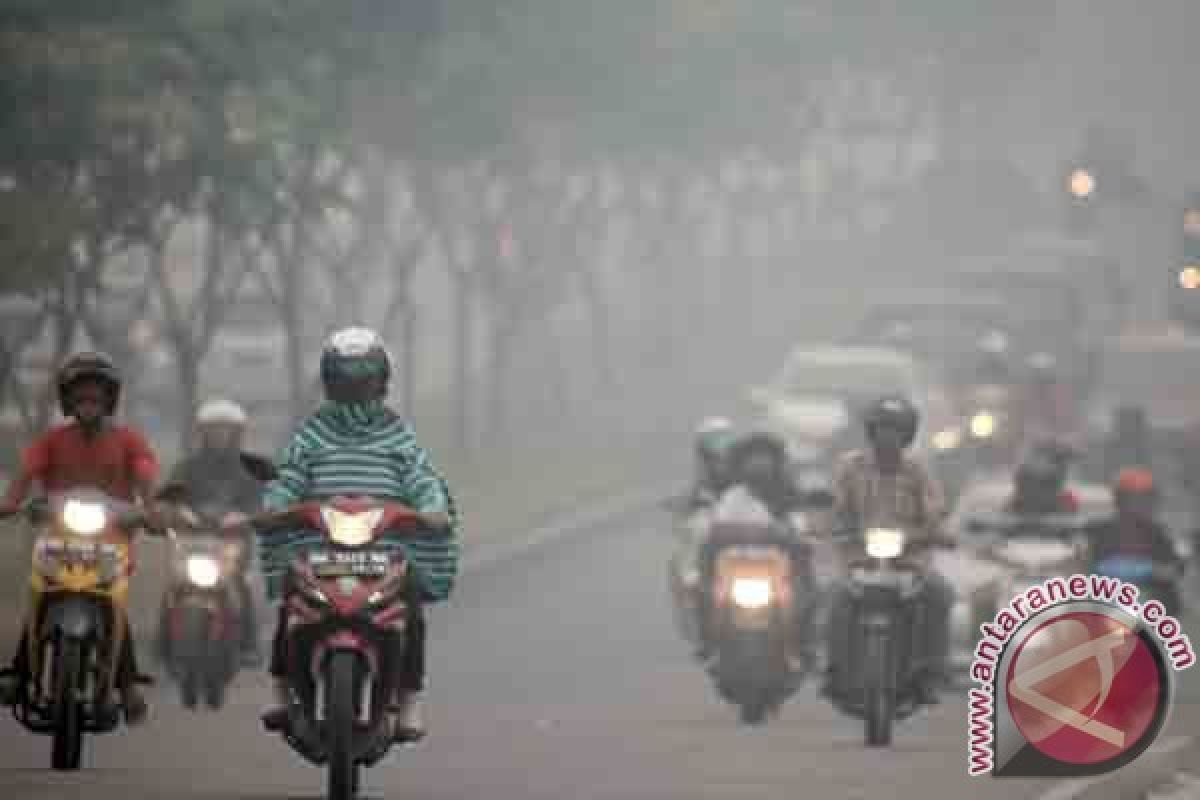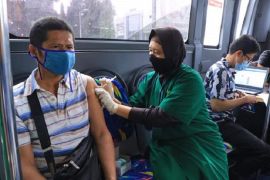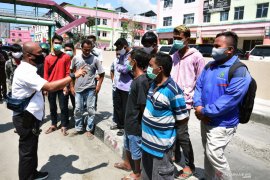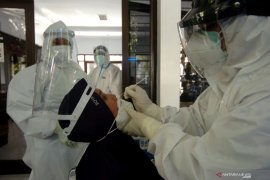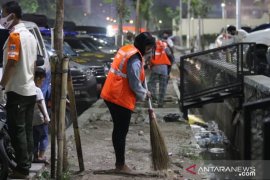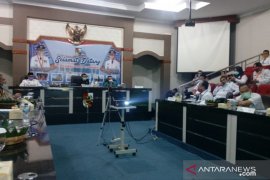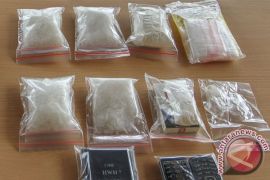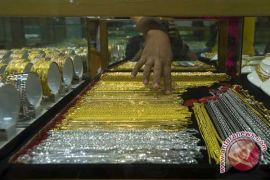There should be sanctions to stop recurrences."Pekanbaru, Riau (ANTARA News) - Haze triggered by forest and plantation fires has caused the air quality in Pekanbaru, Riau Province, polluted and very unhealthy.
"The haze problem now is worse than that in 1997 which occurred for only one week. Currently, Pekanbaru has been covered by haze for over one month," he Suliwanto, a local resident, said here on Sunday.
The Pollution Standard Index (PSI) over Pekanbaru on Sunday reached more than 200, indicating the air was very unhealthy, according to data of the Riau Haze Emergency Response Task Force.
In Bengkalis and Siak districts, the PSI level hit the record of more than 500 Psi, which was categorized as very hazardous.
Over 40 thousand people have been infected with respiratory infection in Riau, particularly in Siak, Bengkalis, Dumai and Pekanbaru.
Fires have razed a total of 14 hectares of forest and plantation areas in Riau.
Chief of the National Disaster Mitigation Agency (BNPB) Syamsul Maarif stated that around 99 percent of forest and plantation fires in Sumatra and Kalimantan were deliberately set.
"There should be sanctions to stop recurrences. Slash-and-burn farming methods indeed exist in Sumatra and Kalimantan, but the most important thing is that it should be controlled," Syamsul Maarif noted in a statement on Feb. 28.
According to Maarif, the Indonesian police have named 23 suspects in Riau and 16 in Central Kalimantan for allegedly setting the fires deliberately.
"There are several factors behind their decision to set fires in plantation and forest areas, such as economic, social and cultural factors," he explained.
The meteorological, climatology and geophysics agency (BMKG) reported that on Sunday (March 9) at 5 am, there were 368 hotspots of forest and plantation fires across Sumatra Island.
Of the 368 hotspots, 327 hotspots were detected in Riau Province, consisting of 112 in Bengkalis, 56 in Meranti Islands, 27 in Indragiri Hilir, six in Indragiri Hulu, 19 in Dumai City, 15 in Rokan Hilir, 67 in Siak, and 25 in Pelalawan.
Around 71 percent or 183 hotspots in Riau were believed to be set deliberately to clear land for plantation.
(Uu.F001/A014)
Editor: Priyambodo RH
Copyright © ANTARA 2014
